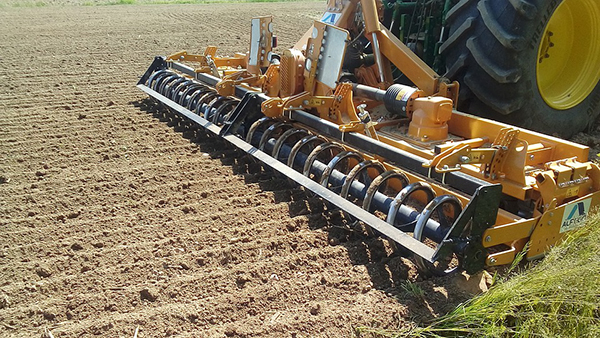Agronomy impacts every single person in this world. The food that we eat, the coffee we drink, the ethanol-based gas on which our vehicle runs, the grass present on the golf field, the natural fibers that makes up the clothing etc. are all products that we obtain from agronomy. Agronomy is a science that perceives agriculture from a holistic and an integrated perspective. Let us learn about the importance of agronomy in our daily life.

Agronomy is one of the branches of agriculture. It deals with the wide range of practices for the development of cereal crops. Some of the examples of these crops are maize, wheat, sorghum, rice, pulse crops and oilseeds. As cereal crops are largely consumed by the people worldwide, agronomy is a science that deals with the method of the cultivation of crops and the essential conditions needed for the cultivation.
For example, “Wheat” is the cereal crop that is the most consumed of all the other crops in the world. Agronomy enables the farmer, to find the right time to sow the seeds, the number of seeds to be sown at one time, the variety of seeds to be sown in a given area, the type and amount of fertilizer needed, and methods to implement for the elimination of pest diseases.
This practice provides knowledge to the agronomists of the ways to apply the nutrients to ensure the best growth of the crop. It is essential for agronomists to get a thorough idea of the attributes of the soil and the way it interacts with the developing crop. It takes into consideration what type of fertilizers or nutrients that a crop requires and when does it require.
Agronomy also describes the way environmental factors and climate conditions influence the crop at different stages of the development. It suggests some important methods to control fungi, insects, weeds, and other type of crop pests.
Agronomy equips farmer with invaluable agricultural information regarding the ways to cultivate and nurture soils and plants in a specific environment. Environment factors such as roots, climate, fungi, pests, weeds, moisture, and erosion pose a lot of major challenges when farmers try to yield a lot of harvest. Agronomist find out methods for integration of crops into the environment. They study obstacles in the field of agriculture that enables them to prosper.
Agronomy is a beneficial technology and science that intends to produce and use plants for the production of fiber, fuel, food, and restoration of land. Agronomists work together for the development of methods that enhances the application of soil and enhance the production of fiber crops and food. They carry out an elaborate research in the rotation of crops, drainage, irrigation soil classification, plant breeding, weed control, soil fertility, and a few other regions as well.
Agronomists test different types of plant and soil samples from all parts of the world to understand how genetic build-up and properties interact with the surrounding environment. On the basis of this input, they perform a research to build high-tech farming practices and tools that boosts the production of crops and safeguards it against a wide range of harmful pests and weeds.
The valuable discoveries made by the Agronomist helps farmer throughout the globe with some critical tips and insights. This information is helpful for not just production of crops, but also for its conservation of the natural environment. Concerns related to water security and food, quality of air, change of climate, loss of soil, degradation, nutrition, health and various other aspects encourage agronomists to continuously explore agricultural resources.
Agronomists forms the fundamental of the “Green Revolution”. They use the most innovative scientific research methods in agriculture and genetics to develop new crop varieties. This superior level of crops displays necessary genetic traits that assist them to fight against diseases and also acclimatize to various new developing conditions. These crops also get profited from enhanced techniques of agriculture that farmers used in the U.S. and the other countries.
Agronomy normally functions to use the harvests in the manufacture of food. This agricultural science works in close association with biotechnology. This is because biotechnology breeds and researches new features in vegetations for agronomy. Soil conservation and Agroecology are two important areas that work closely with agronomy. This is because with their contribution, more plants get planted and contribute towards agronomy.
Conclusion
To conserve, expand, and regain the use of soil and plants for the production of fuel and food, farmers need to integrate agronomy discovery into their approach. This will significantly help in nurturing their crops. When we understand the significance of agronomy as well as the agricultural resources that surrounds us, we can enable soil and plants to reach their maximum potential and reap the advantages out of it.